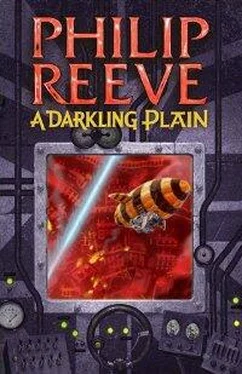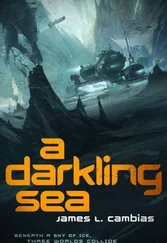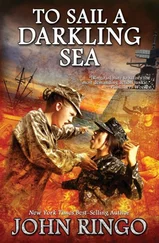He looked pleased to see them, but not in a good way.
Chapter 50
The Stalker’s House
There were some blue squares. Dusty blue, against a background of black. Tom, who had not expected to wake at all, woke slowly, from half-remembered dreams. The squares were sky, showing through holes in a crumbling roof. The clouds had cleared; there was a patch of evening sunlight coming and going on the mildewed wall. He lay on something soft, and there were smells of must and damp around him. His hands and feet felt miles away; his head was too heavy to lift; someone had crammed a big, square slab of stone inside his chest. Faint jabs of pins and needles in his limbs let him know that he was still alive.
“Tom?” A whisper. He moved his head. Hester bent over him. “Tom, my dearest … you blacked out. The Stalker said it was your heart. She said you were dying, but I knew you wouldn’t—”
“The Stalker …” Tom began to understand where he was. The Stalker Fang had scooped him up and taken him inside with her. She had laid him on a bed; an old, worm-eaten, weed-grown bed whose draperies had been nibbled thin by moths, but still a bed; the place you put someone you meant to take care of.
“She let us live,” he said.
Hester nodded. “She’s tied my hands and feet, but not yours. She didn’t bother with yours. If you can reach the knife in my belt…”
She fell silent as the Stalker Fang limped into the room and sat down on the end of the bed, watching Tom with her cold green eyes.
“Anna?” he asked weakly.
“I am not Anna,” whispered the Stalker. “Just a bundle of Anna’s memories. But I’m pleased you’re here, Tom. Anna was very fond of you. You are her very last memory. Lying in the snow, and you looking down and calling her name.”
“I remember,” said Tom faintly. “I thought she was already dead.”
“Nearly,” whispered the Stalker. “Not quite. You’ll understand. Soon you’ll make the same journey.”
“But I’m not ready.”
“Nor was Anna. Perhaps no one ever is.”
Behind her, through the open doorway, Tom could see a room stuffed with machines; lights and screens and bits of equipment too complicated for his tired, shocked brain to fathom. He said, “ODIN …”
“I talk to it from here.”
“Why did you turn it on your own people?”
The Stalker watched him with her head tipped a little to one side. “An overture, before the symphony begins,” she whispered. “By attacking both sides, I made each think the other was to blame; they will be too busy with each other to come looking for me, and that will give me the time I need.”
“To do what?”
“I have been preparing a sequence of commands, a long and complicated sequence. I shall begin transmitting them soon, when ODIN comes clear of the mountains again. They will divert it onto new orbits, give it new targets to strike at.”
“What targets?”
“Volcanoes,” said the Stalker. She reached out gently and stroked Tom’s hair. “Tonight ODIN will strike at forty points along the Tannhäuser chain. Then on across the world: the Deccan volcano maze; the Hundred Islands…”
“But why?” asked Hester. “Why volcanoes?”
“I am making the world green again.”
“What,” cried Tom, “by smothering it in smoke and ash, and killing thousands of people?”
“Millions of people. Don’t get excited, Tom; your poor heart might not take it, and I am so looking forward to having someone sensible to talk to.”
“And what about me?” asked Hester, as if she were afraid the Stalker was trying to steal Tom away from her.
“As long as you don’t try to be foolish or destructive, you are safe. I suppose you will starve in a week or so—there is no food left here. But until then I shall enjoy your company. Anna always felt our destinies were linked, from that first night aboard Stayns…”
The Stalker stopped talking and looked behind her, where a light had begun to flash among the thickets of cabling in the next room; red, red, red.
“No rest for the wicked,” she whispered.
Outside, Fishcake blundered sobbing along the lakeshore. His Stalker had hit him. She could have killed him. She had cast him out. She didn’t care about little Fishcake anymore. She had never cared, not really. He sniveled and whimpered, stumbling over rocks and shingle until he missed his footing and splashed into the shallows. The cold water startled him into silence.
Away across the water the furnace that had been the Jenny Haniver was dying down into a comforting red bonfire. Fishcake tramped along the curve of the shoreline to the wreck site. There was nothing left of the airship now but struts and ribs and one buckled, glowing engine pod, but the explosion had showered the contents of her holds across the reed beds, and amid the debris Fishcake found a few food cans. Their labels were burned off, of course, but they made encouraging sloshing noises when he shook them, and one of them (Tricky Dicky be praised!) was a square tin of fish— sardines, or pilchards—with a key fixed to the lid. Fishcake twisted it open and ate greedily, scooping the fish and the delicious, salty juice into his mouth.
He felt better with some food inside him and started to nose around among the reeds for other scraps. It wasn’t long before he heard the plaintive noises coming from among the rocks uphill. “Mmmmm! Mmmmm!”
Fishcake crept closer, thinking that Tom and Hester must have had a companion aboard their ship who’d been wounded in the crash and whom they’d abandoned (how like them!). But when he reached the place, he found it was a poor old man, trussed up and gagged; another of Tom and Hester’s victims.
“Great Poskitt!” the man gasped when Fishcake pulled the gag off, and “Brave boy! Thank you!” as Fishcake used the sharp edge of the sardine tin to saw through his ropes.
“They’re inside,” said Fishcake.
“Who?”
“Hester and her man. The Stalker took ’em inside. Says they’re her friends. How could anybody think Hester was her friend? That face—enough to put you off your breakfast. If you’d had any breakfast. I haven’t had none for weeks. Help me open this tin, Mister.”
He was asking the right man, said Pennyroyal, and as soon as the ropes parted, he reached inside his coat and fetched out an explorer’s pocketknife, a miraculous object that unfolded to reveal a can opener, a corkscrew, a small pair of scissors, and a device for getting stones out of airship docking clamps, as well as an array of blades that made brisk work of the ropes on his feet. It occurred to Fishcake to wonder why he had not mentioned the existence of the knife before Fishcake went to the trouble of cutting his hands free with a sardine tin, but he wanted to like his new friend, so he decided he was probably concussed. There were some gashes on his head, and blood had run down his face like jam. (Fishcake was still much preoccupied with thoughts of food.)
They opened three tins. There was algae stew in one, rice pudding in another, and condensed milk in the third. It was the best meal Fishcake had ever tasted.
“I say,” ventured Pennyroyal, watching him eat. “You seem a bright lad. Would you know a way out of here, at all?”
“Popjoy’s sky yacht,” muttered Fishcake, wiping milk from his chin. “Over there near the house. I don’t know how to fly it.”
“I do! Could we snaffle it, do you think?”
Fishcake licked the lid of the rice pudding tin and shook his head. “Need keys. Can’t start the engines without keys, and you’d need engines among all these mountains, wouldn’t you?”
Pennyroyal nodded. “Where are the keys? Just out of interest?”
Читать дальше












